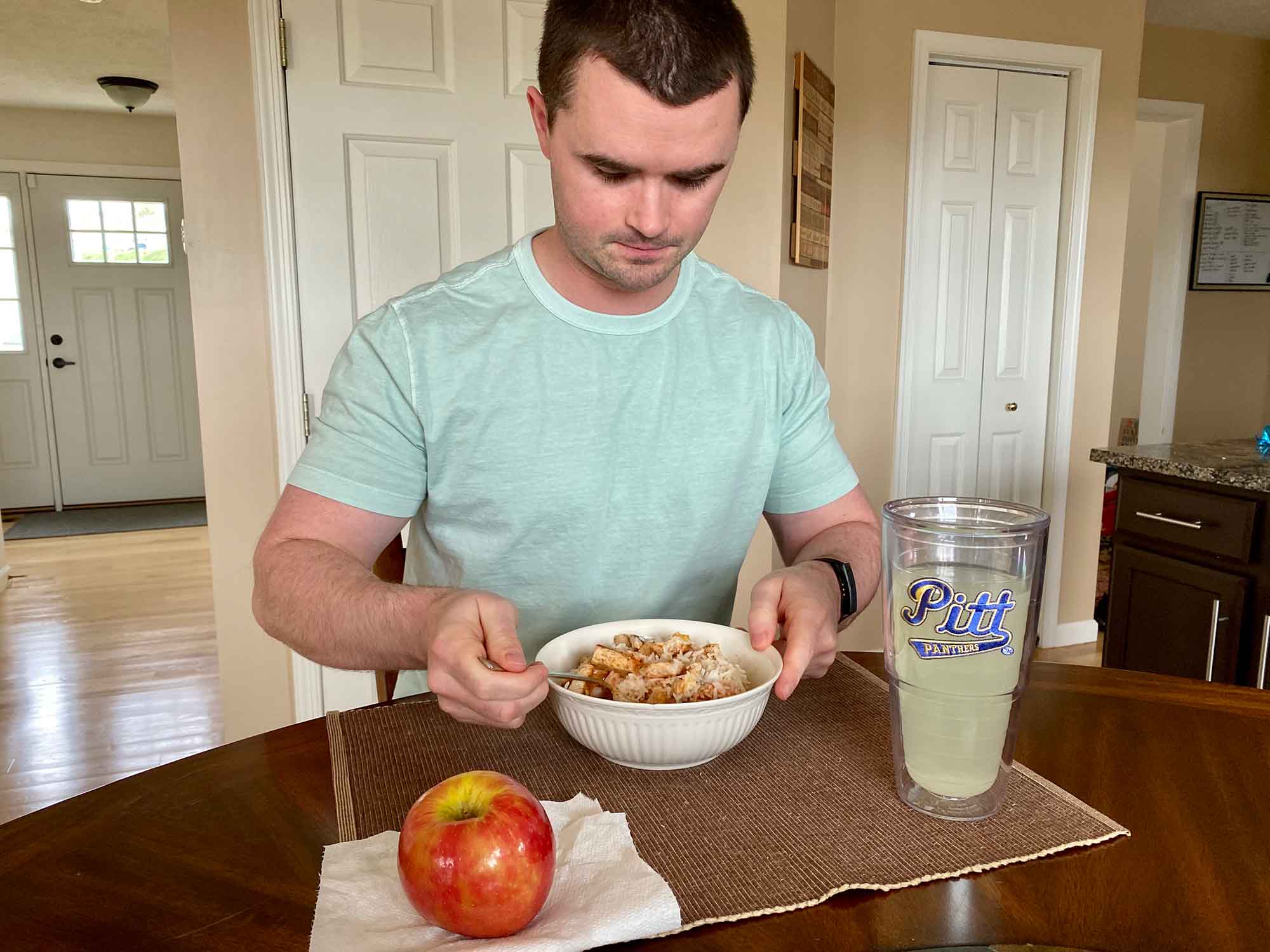
We are addicted to making dieting WAAAYYY more difficult than it needs to be.
Let me map out a scenario for you. Tell me if this sounds familiar…
You want to lose weight. You hear about this new diet that has worked for a bunch of other people. Your friend has tried it and loved it. You see stories about it on social media, and it just seems like the magic fix you’ve been looking for.
So… You try the diet. Your excitement to get started is quickly diminished when you find the diet doesn’t sit well with you. Your stomach hurts, or your cravings shoot through the roof, or you energy levels drop dramatically.
The thought of losing the amount of weight you want to — hitting your goal — feels impossible. This lifestyle just isn’t sustainable.
So you quit the diet. It convinces you that “I just can’t lose weight,” or “I’m not the type of person that can successfully diet.“
This sequence of events is extremely common. It’s why so many people get caught up in yo-yo dieting where they lose a bunch of weight, then gain it back, and so on and so forth.
But why?
Sustainability
The name of the game with EVERY single health and fitness goal is sustainability.
I don’t care what the goal is.
- Wanna lose weight? Sustainability.
- Wanna build muscle? Sustainability.
- Trying to get stronger? Sustainability.
- Training for a race or competition? Sustainability.
You get the picture. Nothing requiring effort is ever done easily. There is no “fix” that will make everything better.
The best diet is the one you can sustain, because let’s be honest… If you’re overweight you probably want to lose the weight and keep it off.
Most people want to look and feel good always, so you need to find a diet plan that’s sustainable in order to accomplish that. You need to develop a positive relationship with the foods you enjoy — not force feed yourself with foods you dislike until you lose enough weight; not abstain completely from foods you love.
There’s a balance to strike that involves eating foods you enjoy and also understanding how some of those foods may negatively impact the pursuit of your goals. The best diet plan you’re not using is built from what you enjoy and what you can sustain.
Coaching Cues
In order to get started building your sustainable diet, you should first analyze what you eat on a regular basis. Are there foods you have every day, or every week? If so, what are those foods and what types of nutrients do they provide?
If you’re regularly eating sweets, you’ll find that they come with a lot of added carbohydrates and some fats. If you’re regularly eating meat, you’ll likely see you’re eating a lot of protein and fat.
Identify the staples of your diet, and identify what those foods bring to the table.
It’s important to analyze what you drink, as well. If you’re a regular consumer of soda or other sugary drinks, you have to account for the calories that come with them. Same goes for your daily coffee at Starbucks (which can run you several hundred calories per cup), the craft beer you love, and so on.
Creating a sustainable diet plan starts with understanding what has been sustainable for you up until now.
Give your diet a really hard look and be honest in evaluating your eating and drinking habits. You’ll likely notice trends. These trends will point you in the direction of what to do next.
A common problem for people in the U.S. is that we drink way more calories than are necessary. A coffee here, a couple sodas there, a Gatorade during your workout, etc. can literally add up to 1,000 extra calories a day. Add that to your meals, which often include some type of sweet dessert, or “guilty pleasure” food, and it will become clear where you can cut calories.
NO. You don’t have to eliminate entire food groups, or food choices, from your diet.
YES. You probably need some moderation in order to find a healthier lifestyle and more successful dieting approach.
This relates back to what I said about sustainability: There’s a balance to strike that involves eating foods you enjoy and also understanding how some of those foods may negatively impact the pursuit of your goals.
Evaluate your diet, adjust, and move forward with your goal in mind.
This sustainable approach will not always be easy — no diet is. But it IS the most effective at helping you continue to enjoy what you eat, not feel sick, not feel drained, not have cravings that lead to binge eating, and not feel slow and lethargic.
—
I hope you found this article helpful! If dieting is something you struggle with and would like help developing a sustainable approach, please contact me and let’s talk! I’ve coached tons of clients through this process of evaluating their diets and creating sustainable approaches to lose weight and keep it off.
You can check out my coaching services page for more information on the services and support I provide.
Thanks for reading!
CGF